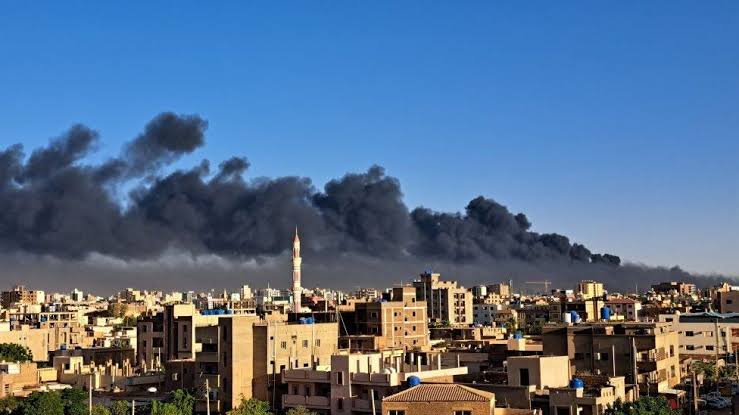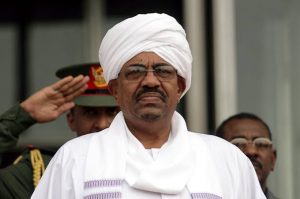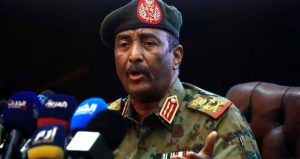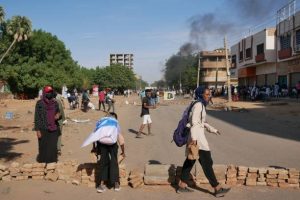
Scorecard of Sudan’s First 100 Days of “Senseless” War
Just like the speed of lightning, the violent conflict in Sudan has suddenly exceeded 100 days, a magical number often celebrated by newly installed administrations in some African countries. To flaunt their immediate efforts for positive impression on the electorate they come up with “Achievements in First 100 Days in Office”—to them the number is the first milestone. For Sudanese, it has been the first 100 days of horror which looked like a thousand years. In the latest round of conflict, the first bullet was fired on April 15, 2023 as the military head of Sudan government, General Abdel Fattah Al-Burhan and the leader of the paramilitary group Rapid Support Forces, Mohamed Hamdan Dagalo, also known as Hemedti, battle for the soul of the country.
Since the conflict broke out, over 3,900 people have been reported dead and more than 2.2million people have been rendered homeless. It was even reported that in Omdurman, a locally known violinist Khaled Senhouri “died from hunger” last week. He simply ran out of stock! In a war situation like the Sudan debacle food scarcity will be at its peak, infrastructure will metamorphose into debris, social amenities will take flight, certainty of life will drop to zero and the climate of fear will reign supreme. This is the scorecard of the first 100 days of “fresh madness” in Sudan. During war, the safest place at times is at the frontline!
Armed conflict is not new to Sudan. The country had fought two Civil Wars and had witnessed the highest number of military coups in Africa, 16, with six successes. After the 2011 secession of South Sudan whose self determination struggle had triggered the civil wars, one would think the Republic of Sudan would henceforth be an abode of comfort. The about three decade misrule of Omar al-Bashir threw the country into economic turmoil and invited mass uprising which compelled the military to seize power in 2019.

Typical of the military, Al-Burhan who became the defacto head of state as the leader of the Sovereign Council—a civilian-military partnership set up to monitor the conduct of election for a return to Democracy—consolidated his power, by forcing out Prime Minister Adalla Hamdok in connivance with Hemedti. Of course, the same Hemedti in armed struggle with al-Burhan! These are two powerful men having a long history with the deposed al-Bashir. The three have fallen apart! Both al-Burhan and Hemedti are marching on the blood of Sudanese as they fight for the throne. Do Sudanese not deserve a long stretch of tranquility?
Tragically, the wound inflicted on Dafur Region, West of the country, by the Arab militia also known as “Janjaweed” under al-Bashir and supervised by both Hemedti and al-Burhan in 2003 has also been brushed opened. During the terror unleashed on Dafur, state agents and the Janjaweed were accused of rape, killings, torture and other human right abuses which made the International Criminal Court charge al-Bashir for crime against humanity. Dafur is yet to be healed and another conflict—this time between the two supervisors of the previous terror—has extended to the region. The usual victims are the non Arab populations who have reportedly been under attacks from RSF and allied Arab militia. Kenya’s President William Ruto in one of his interventions warned about signs of genocide in Dafur.

Since the beginning of the conflict, foreign nationals have been evacuated by their respective countries, leaving locals to bear their own cross. Apparently, the cross is too heavy for Sudanese while the main actors cool off in their mansions. The warring sides have rebuffed every foreign attempt at mediation; they have indicated to fight till ‘death’ like it is in a cage fight. Winner takes all! For how long until either side record military victory?
The effort of the leaders of East African coutries is understandable because of the threat in their sub-region. Instability in the 46.9million state threatens the stability in the sub-region; the aftermath of Libyan armed conflict which saw the collapse of Muammar Gadaffi in 2011 saw the rise of violence across Africa due to the trafficking of arms used in the conflict. If al-Burhan records military victory over Hemedti, what sort of menace will the remnants of RSF rebels be on Sudan and neighbouring countries? If Hemedti wins, will the soldiers loyal to al-Burhan not scatter across neighbouring countries to wreck havoc? Perhaps, a dialogue to arrive at a compromise will be in the interest of all parties involved.

Like the case of Libya, the aftermath of the deposition of the long term dictator, al-Bashir, has left Sudan up for grabs which has created a theatre of war scenario. The intervention of the military has again created a strenuous walk to a representative government which will bring back peace and tranquility. It reminds of the pitfall of absolute power and the destruction it carries in its baggage.
As al-Burhan and Hemedti infamously ‘celebrates’ 100 days of carnage, destruction and humanitarian crisis created by their “senseless war”, borrowing from Ruto, the people of Sudan, sadly, remain the “collateral damage” incurred from this battle of greed. On Sunday, 23rd of July which made 100 days of hostilities a civilian plane crashed at Port Sudan, located at the eastern coast of the country, killing 9 persons, including four soldiers. Only a female crash survived in the crash. Could that be nature’s method of symbolically calling the attention of these warring men to the numerous people sent to their early graves? Memorabilia of horror! The country’s army had in a statement said the plane crashed due to a “technical failure.” Within the first 100 days, Port Sudan airport remains the only active airport which is now critical for movement and humanitarian aide.

It will take the grit and resilience of the civilian population to see the end of these two menaces at once because the winner of the conflict would have committed too much into the war to give up power by simply being asked to. Another battle of legitimacy may be lurking ahead once the current tussle ends. However, Sudan deserves a permanent peace for a stable and developed society.